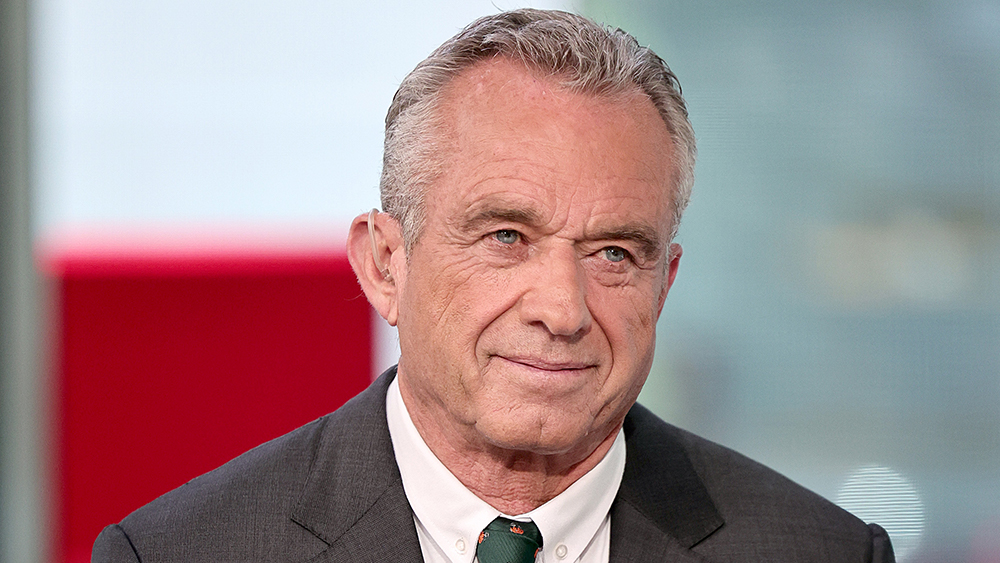- RFK Jr.’s HHS mandates transfer of Medicaid data to DHS for immigration enforcement.
- California and legal experts warn of violation of privacy laws, calling it “potentially illegal.”
- Medicaid officials given 54 minutes to comply amid ethical and legal concerns.
- Government raises concerns over eroded trust in public health programs amid ICE raids.
- Administration defends action as ensuring benefits go to those “legally entitled” to them.
In a move sharply criticized by legal experts and state officials, the Trump administration is directing the U.S. Department of Health and Human Services (HHS) to share confidential Medicaid enrollment data — including names, addresses and immigration statuses — of millions of beneficiaries with federal immigration agencies. The directive, ordered by Health Secretary Robert F. Kennedy Jr.’s office, has sparked alarm over potential privacy violations and misuse of public health data for immigration enforcement, even as protests against recent intensified immigration raids erupt nationwide.
HHS spokesperson Andrew Nixon confirmed the transfer to the Associated Press (AP), citing a need to ensure “Medicaid benefits are reserved for individuals who are lawfully entitled to receive them.” However, according to internal communications reviewed by the AP, officials at the Centers for Medicare and Medicaid Services (CMS) resisted the order, warning that sharing such information could breach the Social Security Act and other privacy laws. Despite these objections, CMS was given fewer than 60 minutes to comply with the HHS directive, prioritizing bureaucratic speed over longstanding legal hesitations.
The data covers millions of immigrants in California, Illinois, Washington State and Washington, D.C. — so-called “sanctuary jurisdictions” that use state funds to expand Medicaid eligibility to undocumented residents. Critics argue the action directly targets these states’ policies, risking public trust in vital healthcare programs and incentivizing unauthorized immigrants to avoid seeking care. “If true, this is potentially unlawful,” said California Governor Gavin Newsom, whose state has emerged as a focal point of federal crackdowns amid ongoing ICE raids in Los Angeles supported by National Guard troops.
The directive’s legal and ethical risks
The transfer has reignited debates over federal overreach into state-managed healthcare systems and the peril of weaponizing personal data for immigration policing. Legal experts note that while the Social Security Act permits the federal government to request Medicaid data for administrative oversight, sharing it with immigration authorities for enforcement purposes has no legal precedent.
Medicaid officials had previously argued that such transparency risks destabilizing state-federal partnerships. “The consequences of [sharing] information unrelated to public health could erode trust not just in these programs but also in the agencies that administer them,” one CMS insider told the AP. The data’s potential use in ICE raids, particularly in neighborhoods under heightened scrutiny, has further inflamed tensions between federal and state leaders already at odds over immigration priorities.
California’s Department of Health has reserved its next steps, but Newsom cautioned that continued federal actions could lead to broader noncompliance down the line. “This sets a dangerous precedent,” his office stated, emphasizing the state’s commitment to protecting residents’ privacy.
Security, privacy and protests on the ground
The data transfer announcement comes amid escalating unrest over President Donald Trump’s immigration policies, including the deployment of Marines and National Guard troops to Los Angeles — a move critics have labeled excessive. ICE agents, armed with federal support, have conducted sweeping arrests in immigrant-heavy neighborhoods, prompting widespread unrest and protests. Meanwhile, demonstrators in LA faced tear gas and surveillance tools like CBP drones hovering overhead.
Immigrant communities, meanwhile, have turned to DIY digital networks to alert neighbors of ICE activity, while data privacy advocates warn that personal information could increasingly be weaponized. A recent investigation by Wired and 404 Media revealed that airlines may have sold flight data to Customs and Border Protection (CBP), instructing the agency to omit such disclosures from public records.
RFK Jr.’s team defended its actions as procedural, arguing Medicaid’s mission to identify eligible beneficiaries requires collaboration with other federal agencies. However, the hasty timeline — 54 minutes for compliance — raises questions about oversight. “Ethical review took a backseat to expediency,” said one former HHS official.
Privacy vs. enforcement
This incident echoes past controversies where public health data has intersected with immigration enforcement. Under previous administrations, concerns over equitable Medicaid access led to expansions shielding recipients from immigration-related probes. Now, critics worry vulnerable populations will disengage from healthcare, worsening both individual outcomes and public health risks.
The administration’s insistence on merging healthcare and immigration systems could also strain federal-state relations in budget-strapped jurisdictions, especially during crises like flu season or potential outbreaks requiring robust public health coordination.
“Medical privacy is the cornerstone of a functioning healthcare system,” said Dr. Lena Wen, a public health advocate. “Using it as leverage for enforcement endangers everyone.”
A precarious balance between sovereignty and civil liberties
The Medicaid data transfer reflects the Trump administration’s relentless pursuit of its immigration agenda, even as it stokes fear within immigrant communities and legal strife with states resisting federal overreach. With protests mounting and constitutional boundaries under scrutiny, this move underscores the growing challenges of balancing national security goals — and the contentious role of public institutions in enforcing them — with the preservation of civil liberties central to the republic. For millions, the choice between accessing healthcare and avoiding deportation remains unsustainable— and a defining crisis of federal governance.
Sources for this article include:
